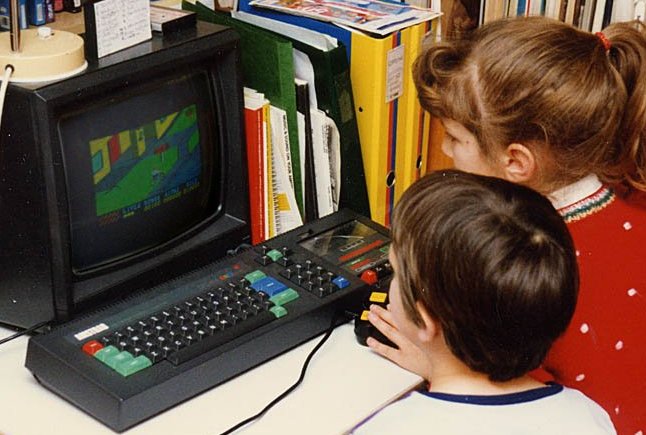Mnementh said:
No. Let's see to your arguments.
"If Nintendo didn't do it someone else would have"
You say: "After the 1983 crash, literally no one wanted to have anything to do with video games anymore, from companies to consumers and retailers."
This is obviously wrong. True, some companies that had entered the market from other sides like Fairchild and Mattel left the market and fell back on their core businesses. But with Mattel the story becomes already more complicated. Citing from Wikipedia:
"Former Mattel Electronics Senior Vice President of Marketing, Terrence Valeski, understood that although losses were huge, the demand for video games increased in 1983. Valeski found investors and purchased the rights to Intellivision, the games, and inventory from Mattel. A new company, Intellivision Inc, was formed and by the end of 1984. Valeski bought out the other investors and changed the name to INTV Corporation."
https://en.wikipedia.org/wiki/Intellivision#Competition_and_market_crash
Intellivision kept on going until 1990. Why did they stop 1990? Let's see:
"Licensing agreements with Nintendo and Sega required INTV Corporation to discontinue the Intellivision in 1990."
So Intellivision leaving the market wasn't a direct reaction to the crash, it was because of the new competitors Nintendo and Sega.
Magnavox was already since 1974 a subsidiary of Philips. Philips was handling the european distribution of Magnavox Odyssey² under the name Philips Videopac G7000. They followed that up with Philips Videopac+ G7400 and that with the Philips CD-i and the Philips MSX. So also Philips was willing to stay in the market. But Nintendo and Sega were more successful. So Philips ended up cooperating with Nintendo by providing their CD-i for the SNES.
Atari had difficulties as a company and Arcade part and home consumer part were split, but they stayed in the market. The Atari 7800 released in 1986, the Jaguar in 1993. But Atari was unable to compete with Nintendo and Sega.
So yes, without Nintendo we would've seen the market relived by Atari, Philips, Intellivision and Sega. Only the competition with Nintendo and Sega forced the other companies out of the market, not the crash.
"Only the console market crashed, people just moved on to PCs & Arcades after the crash, video games were still popular"
Interesting graphics you have, but it doesn't support your statement. Arcade revenue did also go down as you point out. But it moves independently of the home console market. Look at your graph, Arcade already started contracting as home console revenue was still climbing. Arcade also stopped at around it's former size, while home console revenue completely collapsed in 1985. But the most interesting part is that at the time both Arcade and Home console dropped, the PC-market grew. Only at the point the home console market recovered, the PC market shrinked again. It seems PC-market and home console market were vying for the same customers. As the console market crashed, the gamers went to PC.
But the revenue is much lower. True. But that the graph is about revenue somehow downplays the importance of the PC-market. As on PC was much more piracy (yes, believe me, I was there back then) and lower game prices (lots of Shareware and free demos, think that Doom released the complete first chapter (of three) completely without cost) the revenue is much smaller as on other platforms, but that hides the amount of players and games. As development cost and distribution is much lower on PC, it also was much more simple to have a sufficient business with this much smaller revenue. That is why this small revenue bar hides a plethora of games and players.
More importantly, as the entry hurdles were so low, the PC-market created life-long players and a lot of game developers.
So in conclusion: if the home console market hadn't recovered, the PC-market would've kept on growing. Slowly but solidly.
"The Video Game Crash Only Happened in NA, other regions were still playing games"
The world wasn't as globalized back then, as it is today. You claim the crash would've burned into other countries, but Nintendo itself is proving you wrong. The Famicom released 1983 in Japan, just as the crash was starting in the US. It didn't affect the japanese market, which hadn't for the most part even seen the american home consoles. But even besides Nintendo a lot of Japanese companies developed, mostly for Arcade (Konami, Bandai) or the differing PC-platforms available in Japan (Square, Enix).
In europe the american consoles had some presence, but the home console market never really started there until the Playstation. If there is no market to begin with, it cannot crash. Europe at that time mostly started playing on PC, as you can see with the plethora of european gaming comanies starting at that time with PC games:
- Ubisoft: founded 1986 in France
- Infogrames Entertainment: founded 1983 in France
- Blue Byte: founded 1988 in Germany
- Silmarils: founded 1987 in France
- Adventure Soft: founded 1983 in the UK
- Codemasters: founded 1985 in the UK
And so on. They all started in europe as PC-devs, as this was the viable platform, home console was seldomly a viable market in europe alone, even after the NES. This only changed after the Playstation.
So in conclusion: Japan and Europe had developing gaming markets on their own, for big parts disconnected from what was happening in the US.
|































































